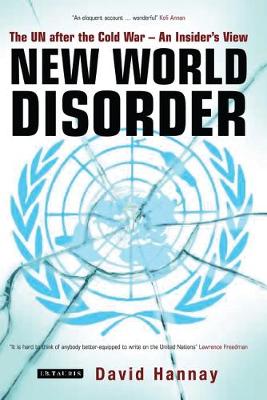The end of the Cold War triggered a historic shift in world politics, and nowhere was this more keenly felt than in the United Nations. This is an insider's account of that turbulent period. Lord Hannay, who, as Britain's representative to the UN, sat in the Security Council from the time of Saddam Hussein's invasion of Kuwait until the Srebrenica massacre in Bosnia (1990-1995), gives a first hand view of events as they unfolded. Just weeks after George H.W. Bush and Mikhail Gorbachev's historic handshake, the UN was being asked to repel the Iraqi invasion of Kuwait, to wind up a string of Third World proxy wars, and to find a solution to the challenges of environmental degradation and climate change. At first, the Five Permanent Members of the Security Council worked together to an unprecedented extent, with notable success.But as Hannay shows, little was done to prepare for the problems of state failure - in Somalia, in the former Yugoslavia, in Rwanda and in Afghanistan - which proved beyond the UN's capacity to handle and which frayed the solidarity of the main powers.
Hannay subsequently joined the Secretary General's High Level Panel, and spearheaded the most ambitious attempt at reform of the organisation since it was founded in 1945. He recounts here with insight and candour why this programme came to be derailed. "New World Disorder" is an invaluable source of information for anyone seeking to understand the current structures, dynamics and trends of world politics. It is also a compelling account of one of the great turning points in world history, as seen from inside the eye of the storm
- ISBN10 1845117190
- ISBN13 9781845117191
- Publish Date 30 May 2008 (first published 1 January 2008)
- Publish Status Out of Print
- Out of Print 4 March 2021
- Publish Country GB
- Publisher Bloomsbury Publishing PLC
- Imprint I.B. Tauris
- Format Hardcover
- Pages 336
- Language English
